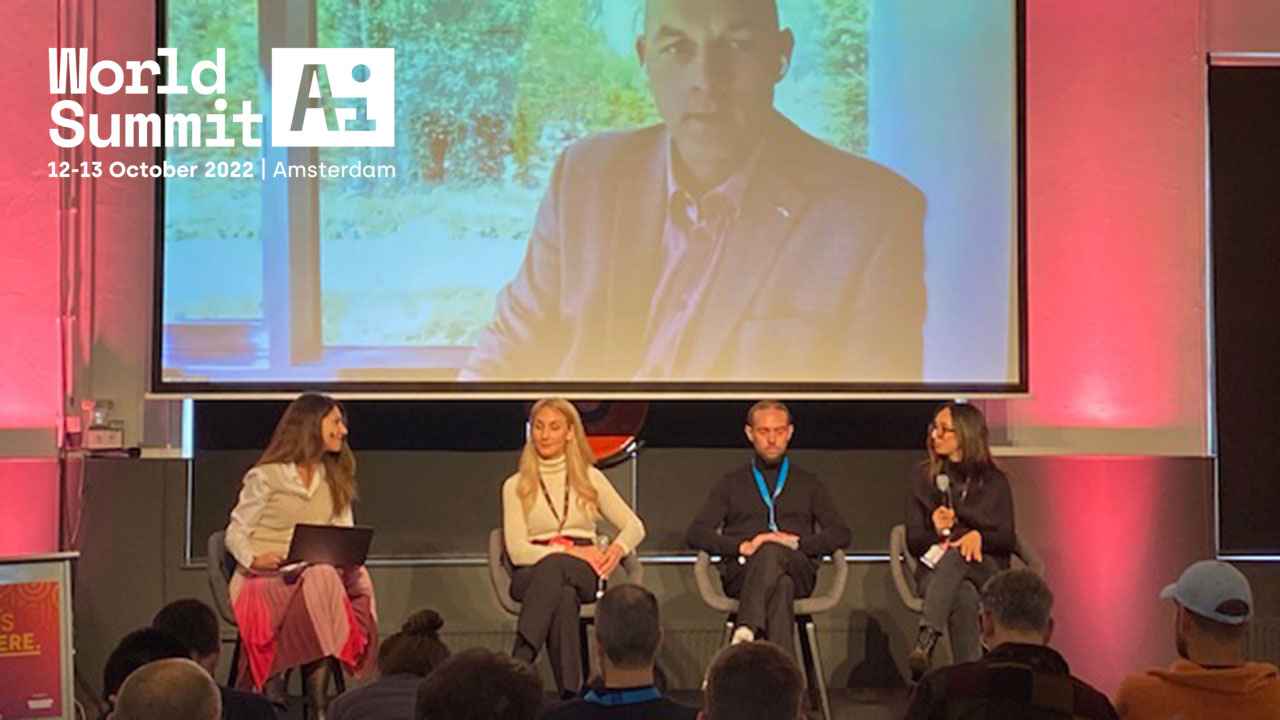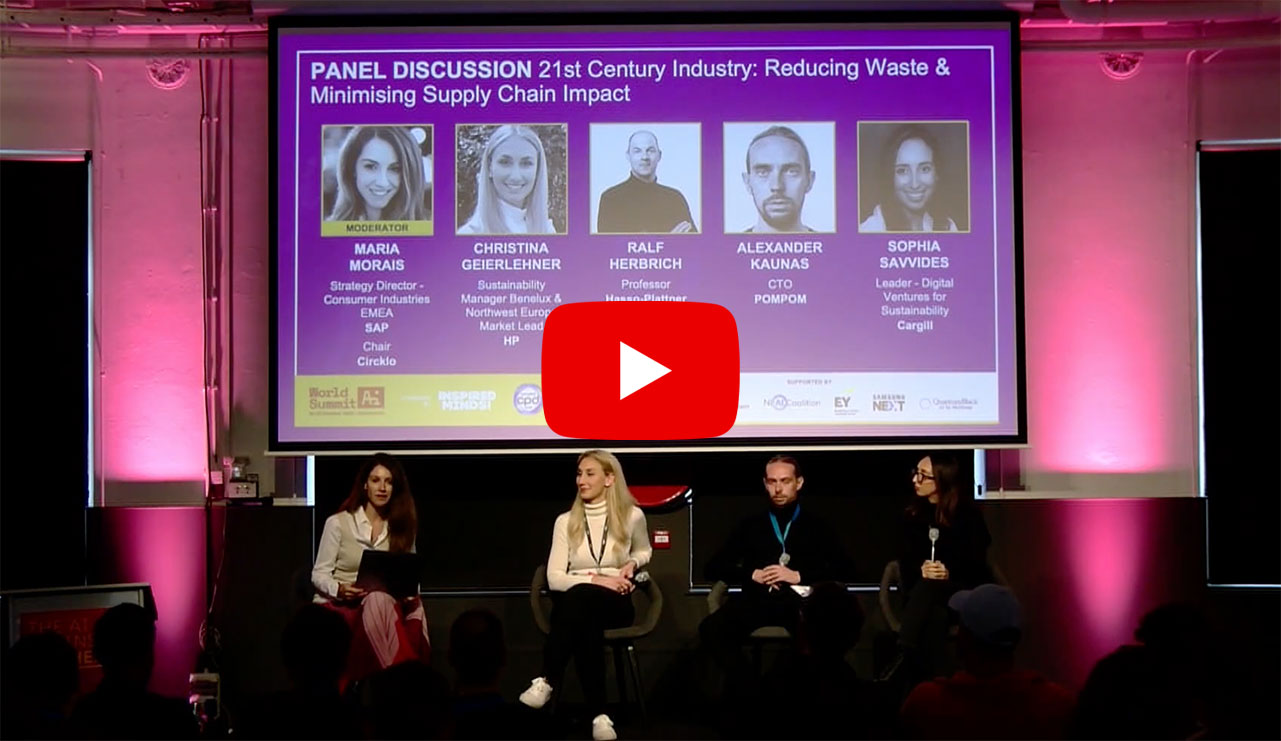Circumventing Complexity at the World AI Summit

31 October 2022
Earlier this month, Circklo’s Chair and Co-founder Maria Morais, moderated an exceptionally interesting panel discussion during the World AI Summit, the largest summit in the world covering the entire spectrum of artificial intelligence (AI) application, developments, and ethical considerations.
As the world’s leading and largest AI summit taking place every year over two days in Amsterdam, this event gathered the global AI ecosystem of Enterprise, Big Tech, Start-ups, Investors and Science, and the brightest brains in AI as speakers to tackle head-on the most burning AI issues and set the global AI agenda.
Morais’ panel guests were:
- Sophia Savvides, Leader – Digital Ventures for Sustainability at Cargill
- Prof Ralf Herbrich of Hasso-Plattner Institute
- Christina Geierlehner, Sustainability Manager Benelux and North West Europe Market Lead at HP
- Alexander Kaunas, CTO at POMPOM
With the key topic of the panel discussion centred around waste reduction and minimisation of the supply chain impact, the key takeaways from the panel debate are:
- Economic feasibility and good for the planet can no longer be discussed separately or in isolation;
- Food surplus in the supply chain can be tackled by using AI and machine learning;
- The ‘sell-by’ date for most fresh food products is completely subjective, with an expert variation in judgement by 20%, depending on the time lapse between that product being visually assessed several times; hence an AI-driven imaging method is optimal
- Device-recovery products (end-of-cycle items) should become mainstream and refurbished for the same or an alternative use. National regulations play a significant role in making this happen, especially given the mandatory percentage of recycled product inclusion
Remarking on two full-on days at the World AI Summit, Morais said:
“The solutions needed to solve the big problems of the world are very likely to have an AI component, because AI is changing the way we do business. Lack of data, technology and insights automatically leads to the creation of waste: to understand how much we need to minimise of something, we need to know first how much of that something is generated at every reference time, where, how, by whom and why – and this is where AI has a very important role to play.”
